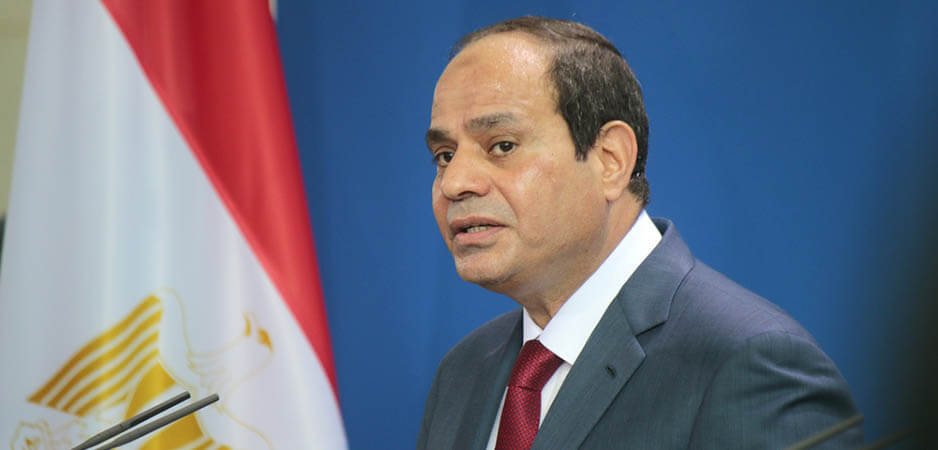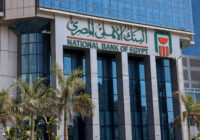In the face of occasional violent tantrums, some leaders continue to think of their nation as one big, happy family.
During a visit to Egypt on January 28, French President Emmanuel Macron fulfilled his duty as a responsible Western leader by insisting that human rights and the rule of law are the key to stability. Countering this, Egyptian President Abdel Fattah el-Sisi philosophized: “Egypt does not advance through bloggers. It advances through the work, effort and perseverance of its sons.”
Here is today’s 3D definition:
Sons:
For a political leader, all the common people under their authority who ideally exist in a state of absolute dependence on the will and wisdom of their fatherly figure
Contextual note
French leaders are highly skilled in announcing universal truths for the consideration of the rest of humanity. In that sense, the rest of humanity can be called the “sons” of the French Enlightenment. Here is the wisdom Macron imparted during his press conference with President Sisi: “Stability and durable peace go together with respect for individual dignity and the rule of law, and the search for stability cannot be dissociated from the question of human rights.”
This sounds very rational and — we are meant to presume — universally valid, but there are plenty of examples in history of stable regimes where human rights were utterly neglected. And this is coming from the man who, during his presidential campaign in 2017, claimed he would respond to his people’s need for a “Jupiterian” president.
Even invoking the rule of law sounds rather dodgy coming from President Macron, who recently used his Jupiterian authority to change the tax law to favor the rich while punishing the poor, and since then has been dealing with a revolt of the common people. But it is now a consecrated ritual of Western leaders of nations capable of exporting weapons to at least mention human rights to their authoritarian partners before engaging in the lucrative business of the arms trade.
At one point, Macron was a bit more explicit in his criticism of Egypt: “My line is: Stability and respect for sovereignty. But what is happening here threatens” Egypt’s stability. In guise of explaining what he meant by “what is happening here,” he pointed out that a lot of ordinary people “‘who do not threaten the regime’s stability’ have been jailed.”
In a demonstration of his own mastery of universal truths and intercultural wisdom, Sisi countered: “We’re not like Europe, nor the United States, we are a country or a region that has its own characteristics.” In other words, stability has never been a problem in Saudi Arabia or the United Arab Emirates, for example, and no one has made a serious effort to get them to respect human rights. So, even if Egypt has no oil — a resource that is more persuasive than the finest rhetoric, allaying unnecessary criticism — the proud nation should be allowed to conform to the despotic practices of its region.
Historical note
Revolutionary France in 1789 gave Europe its first democracy since ancient Athens, but both before and after that time, authoritarianism has played a role in its culture. During his long reign ending in 1712, Louis XIV had proved to be a very “stable” despot, who had no time for human rights, though it all came back to bite his great grandson, Louis XVI, ousted and then beheaded by the Revolution. The immediate response to the anarchy and uncontrollable bloodshed of the ensuing “reign of terror” was the rise of Bonaparte and the Napoleonic empire, a former general who saw the entire population of Europe, right up to Moscow, as potentially his “sons.”
Egypt and France were faced with Islamic terrorism. I reminded President Sisi that our commitment to security cannot be considered separately from the issue of human rights. An inclusive society is the best shield from Islamic terrorism. https://t.co/DbOWjXRsoh
— Emmanuel Macron (@EmmanuelMacron) January 28, 2019
After alternating between republics and empires in the 19thcentury, and then more republics in the 20th century punctuated by a Vichy government acting as a puppet for Nazi Germany, France finally settled into the current Fifth Republic in response to the chaos of the Algerian War.
A fundamentally presidential regime, theoretically sharing power with parliament, the Fifth Republic was created in the image of General Charles de Gaulle, a paternal figure, if ever there was one. He might have thought of French citizens as the republic’s sons and daughters, but as the leader of the anti-Vichy campaign, his legitimacy depended on what he represented — “La France libre” — rather who he was. The French would not allow themselves to be thought of as juveniles even if the sanguinary national anthem begins with the words, “Allons, enfants de la patrie” (“Come on, children of the fatherland”).
Macron probably took a step too far in referring to Jupiter, the father of the gods. In a context of globalization perceived by the people to be run by and for the international banks, the first president to earn his stripes not in politics, but at the Banque Rothschild belongs to a class that most French people despise — not just for their money and power, but because most people actually understand the relation between the two. That may be one of the chief accomplishments of the French educational system.
The sons of the Fifth Republic are currently rebelling against the fathers, and in the most annoying way possible. The sons of Egypt had a go at rebellion in 2011 before being recast as unruly juveniles, with the help of Saudi Arabia, the US and other powers convinced that fathers know better than sons and that Egypt belongs to “a region that has its own characteristics.”
*[In the age of Oscar Wilde and Mark Twain, another American wit, the journalist Ambrose Bierce, produced a series of satirical definitions of commonly used terms, throwing light on their hidden meanings in real discourse. Bierce eventually collected and published them as a book, The Devil’s Dictionary, in 1911. We have shamelessly appropriated his title in the interest of continuing his wholesome pedagogical effort to enlighten generations of readers of the news.]
The views expressed in this article are the author’s own and do not necessarily reflect Fair Observer’s editorial policy.
Support Fair Observer
We rely on your support for our independence, diversity and quality.
For more than 10 years, Fair Observer has been free, fair and independent. No billionaire owns us, no advertisers control us. We are a reader-supported nonprofit. Unlike many other publications, we keep our content free for readers regardless of where they live or whether they can afford to pay. We have no paywalls and no ads.
In the post-truth era of fake news, echo chambers and filter bubbles, we publish a plurality of perspectives from around the world. Anyone can publish with us, but everyone goes through a rigorous editorial process. So, you get fact-checked, well-reasoned content instead of noise.
We publish 2,500+ voices from 90+ countries. We also conduct education and training programs
on subjects ranging from digital media and journalism to writing and critical thinking. This
doesn’t come cheap. Servers, editors, trainers and web developers cost
money.
Please consider supporting us on a regular basis as a recurring donor or a
sustaining member.
Will you support FO’s journalism?
We rely on your support for our independence, diversity and quality.






